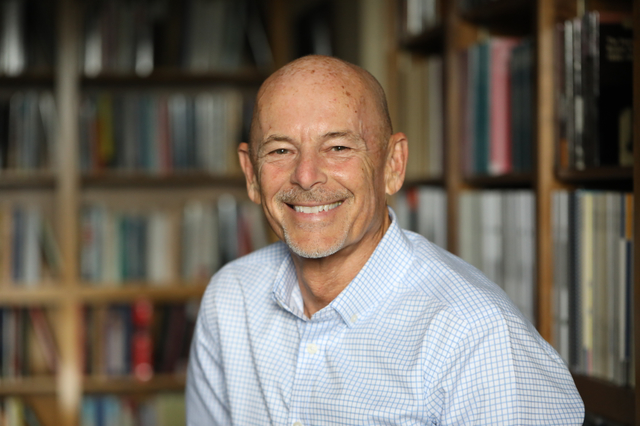Director, Institute for Studies of Religion
Distinguished Professor of the Social Sciences
Publications|Vitae
Byron_johnson@baylor.edu
+1-254-710-7555
One Bear Place #97236
Waco, TX 76798-7236

Byron Johnson is Distinguished Professor of the Social Sciences at Baylor University and is the founding director of the Baylor Institute for Studies of Religion (ISR). Johnson is a faculty affiliate of the Human Flourishing Program at Harvard University, and is co-executive director of the Center for Faith and the Common Good as well as Visiting Distinguished Professor in the School of Public Policy at Pepperdine University. In 2016, he co-founded of the Religious Freedom Institute, based in Washington, DC.
Johnson is a former member of the Coordinating Council for Juvenile Justice and Delinquency Prevention (Presidential Appointment). He has been the principal investigator on grants from private foundations as well as the Department of Justice, Department of Labor, Department of Defense, National Institutes of Health, and the United States Institute for Peace, totaling more than $80 million. He is the author of more than 200 journal articles, monographs, and books. He is recognized as a leading authority on the scientific study of religion, the efficacy of faith-based organizations, and criminal justice. Recent publications have examined the impact of faith-based programs on offender treatment, drug addiction, recidivism reduction and prisoner reentry. These topics are the focus of his book More God, Less Crime: Why Faith Matters and How It Could (2011).
Johnson’s work examines the ways in which religion impacts key behaviors like volunteerism, generosity, and purpose. These topics are covered in four recent books, The Angola Prison Seminary (2016), which evaluates the influence of a Bible College and inmate-led congregations on prisoners serving life sentences; The Quest for Purpose: The Collegiate Search for a Meaningful Life (2017), which examines the link between religion and finding purpose and meaning, and the subsequent link to academic integrity; The Restorative Prison: Essays on Inmate Peer Ministry and Prosocial Corrections (2021), which looks at the empirical evidence in support of the link between religion and the emerging subfield of positive criminology; and Objective Religion: Freedom, Politics, Secularization (2023), which examines factors related to the importance and resilience of religion.
He is the project co-director (with Tyler J. VanderWeele) of the Global Flourishing Study (GFS) a five-year longitudinal data collection and research collaboration between researchers at Baylor University and Harvard University, in partnership with Gallup and the Center for Open Science (COS), and with the support of a consortium of funders. This initiative includes data collection for approximately 200,000 participants from 22 geographically and culturally diverse countries. As part of this project, COS is making the data from the study an open access resource so researchers, journalists, policymakers, and educators worldwide can access detailed information about what makes for a flourishing life.





